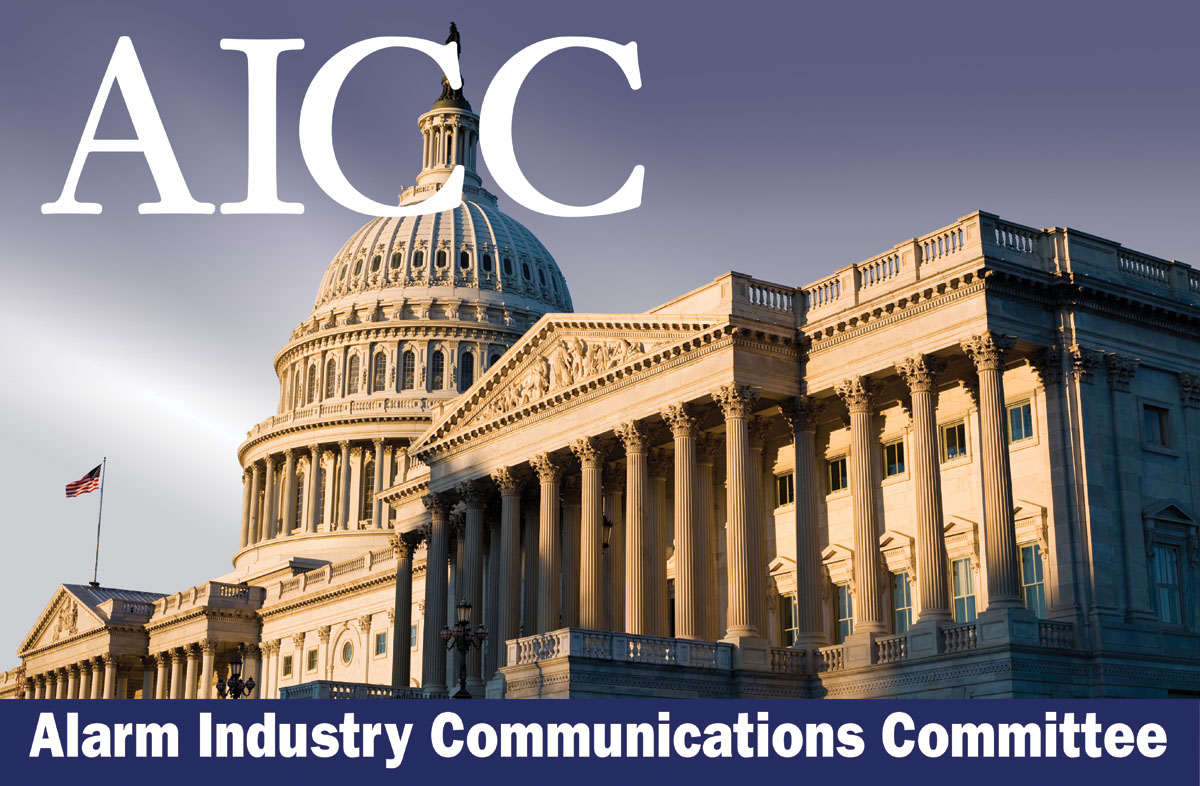AICC Files Comments Opposing Streamlining and Forbearance of Section 214 Requirements
 On February 16, AICC filed reply comments on the Commission’s Technology Transitions Further Notice of Proposed Rulemaking (FNPRM), concerning proposed changes to the rules in connection with the discontinuance of legacy voice service. The notice addressed (1) retirement of landline copper lines and (2) replacement of legacy services (i.e., traditional Plain Old Telephone Service, also known as “POTS”) with next-generation service, such as Voice over Internet Protocol (VoIP).
On February 16, AICC filed reply comments on the Commission’s Technology Transitions Further Notice of Proposed Rulemaking (FNPRM), concerning proposed changes to the rules in connection with the discontinuance of legacy voice service. The notice addressed (1) retirement of landline copper lines and (2) replacement of legacy services (i.e., traditional Plain Old Telephone Service, also known as “POTS”) with next-generation service, such as Voice over Internet Protocol (VoIP).
AICC urged the Commission to reject the streamlining and forbearance proposals outlined in the FNPRM and in the comments of Verizon and AT&T because they are not in the public interest.
AICC argued that the process to allow carriers to discontinue voice services should not be streamlined if there are alternative providers of voice services because entities offering services over fiber, cable and wireless networks, and IP-based services, oftentimes do not provide the same quality, reliability and functionality as the TDM-based services and legacy voice services on which consumers rely.
AICC stated that to be an acceptable alternative to legacy voice service, an alternative voice service should provide the same quality, reliability and functionality as the TDM-based services on which consumers rely. To be functionally equivalent to a TDM-based service, the new service must be equivalent with respect to dialing, dial plan, call completion, carriage of signals and protocols, loop voltage treatment, decibel loss, jitter, dual tone multi frequency (DTMF) signal performance, compression and latency. The service should meet these standards for the entire span of the connection, even when a call is routed to an intermediate provider in the call path. It also should include twenty-four (24) hours of standby power supply capacity for communications equipment deployed in the field and twenty-four (24) hours of standby power supply capacity for communications equipment at the central office or equivalent facility. In addition, a substitute service must support alarm signaling from premises, including medical alert or PERS systems and the ability for an alarm provider to reach a remote alarm system and control it as necessary.
AICC stated that the alarm industry has experienced serious issues in 2016 and 2017, when alarm signals were not completed in connection with Verizon’s fiber facilities or, possibly, an alternative cable network provider. AICC also discussed how alternative providers make changes to their networks that affect service reliability and quality on a regular basis- either by changing their own network parameters, for example, with respect to compression, or by using intermediary providers that do not meet the same reliability and quality standards. AICC also noted that Verizon sought to replace POTS service with a substandard wireless alternative, Voice Link, on Fire Island, NY, which was not capable of supporting alarm services.
AICC further argued that a carrier should not be able to rely on services provided by other providers to justify the discontinuance of legacy voice services because a carrier cannot know that services provided by another provider will meet the necessary reliability and functionality standards or ensure that an alternative provider will not change its service parameters.
AICC stated that the Commission should examine alternative services, provided by the discontinuing carrier and other providers, as part of the Section 214 discontinuance process to make a specific determination as to whether each such service meets reliability and functionality standards such that the public interest will not be adversely affected by the discontinuance of legacy voice services. Accordingly, the Commission should not streamline the Section 214 process as proposed in the FNPRM and the comments of Verizon and AT&T.
AICC also opposed the proposals urging the Commission to forbear from applying section 214(a)’s discontinuance requirements to carriers seeking to transition from legacy voice services to next-generation replacement services. AICC argued that no showing has been made, as required by Section 10 of the Communications Act, that Section 214 approval is not necessary to ensure that the charges, practices, classifications, or regulations by, for, or in connection with that telecommunications service are just and reasonable; Section 214 approval is not necessary for the protection of consumers; and forbearance is in the public interest in all such cases. Further, AICC argued that we know that every and all alternative voice service is not an adequate substitute for legacy voice services. Accordingly, blanket 214 forbearance is not in the public interest and cannot be granted.
AICC also argued that if the Commission is asking whether Verizon, for example, should be able to discontinue its regulated legacy interstate voice services when it offers unregulated FiOS service, such a result would not be in the public interest. AICC argued that many alarm customers rely on tariffed, legacy voice services in connection with their alarm services. Importantly, interstate toll free services are oftentimes used to transmit an alarm signal from the subscribers on- premise alarm system to the alarm monitoring service. Local exchange carriers should not be allowed to discontinue access to interstate services, such as toll free services, to their subscribers of regulated voice services.
–Contributed by Mary Sisak, AICC Counsel










Leave a Reply
Want to join the discussion?Feel free to contribute!